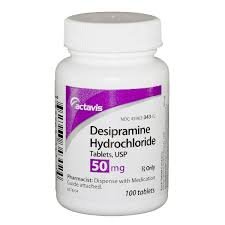What is desipramine?
desipramine
Get Now
Mechanism of Action
Desipramine works by inhibiting the reuptake of norepinephrine and, to a lesser extent, serotonin in the brain. By preventing the reabsorption of these neurotransmitters, desipramine increases their availability in the synaptic cleft, enhancing mood and emotional regulation. Its effects on norepinephrine are particularly significant, which contributes to its stimulating properties compared to other TCAs.
Therapeutic Uses
Desipramine is primarily indicated for:
- Major Depressive Disorder (MDD): It is effective in treating moderate to severe depression, particularly in patients who have not responded to other antidepressants.
- Attention-Deficit Hyperactivity Disorder (ADHD): Desipramine is sometimes use off-label to help manage symptoms in children and adults.
- Chronic Pain Management: Its analgesic properties make it beneficial in treating certain chronic pain conditions, including neuropathic pain.
- Anxiety Disorders: Although less common, it may also be prescribe for anxiety, particularly when depression is co-morbid.
Dosage and Administration
Desipramine is available in oral form, typically administer in tablet form. The dosage is individualized based on the condition being treat, patient response, and tolerance. It’s essential for patients to follow their healthcare provider’s instructions carefully, as the dosage can range widely, from 100 mg to 300 mg daily depending on the severity of the condition and patient-specific factors.
Side Effects
Like all medications, desipramine has potential side effects, which may include:
- Common Side Effects: Dry mouth, blurred vision, constipation, urinary retention, and weight gain.
- Cardiovascular Effects: It can cause increased heart rate and orthostatic hypotension (a drop in blood pressure when standing up), so monitoring is essential, especially in older adults or those with preexisting heart conditions.
- Central Nervous System Effects: Patients may experience sedation, dizziness, or confusion. In some cases, desipramine can also increase the risk of seizures.
- Potential for Overdose: As with other TCAs, overdose can lead to severe cardiovascular and neurological complications. Thus, it is vital to use the medication as prescribe.
Contraindications and Precautions
Desipramine should be use with caution in individuals with:
- History of Cardiovascular Disease: Due to its potential cardiac side effects.
- Glaucoma: As it may increase intraocular pressure.
- Bipolar Disorder: It may trigger manic episodes in susceptible individuals.
- Pregnancy and Breastfeeding: Consult a healthcare provider as risks and benefits need careful evaluation.
Conclusion
Desipramine remains a valuable option in the pharmacological treatment of depression and other related disorders. While it offers significant benefits for many patients, understanding its potential side effects and contraindications is crucial. As with any medication, ongoing communication with healthcare providers ensures the best outcomes and mitigates risks associated with its use. As research continues to evolve, desipramine’s role in treating mental health conditions may further expand, solidifying its place in modern therapeutic strategies.



